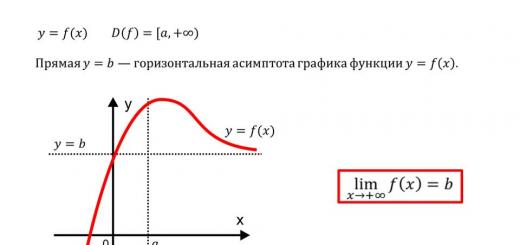- this is a auxiliary part of speech expressing dependence noun, numeral, pronoun from other words in the phrase, and therefore in the sentence. For example, count before seven, leave from class, run behind hare etc. They serve to express various semantic relationships between words in a sentence...
The term "preposition" literally means "before the word." Prepositions usually come before the word they are combined with.
There are four prepositions that can appear before and after the words they are combined with: for the sake of boredom - boredom for the sake of; go towards friends - forward, dawn towards; contrary to expectations - reason contrary to; contrary to to the elements - to fate contrary to.
In terms of frequency of use, it ranks fourth after nouns, verbs and pronouns.
General grammatical meaning prepositions - designation of a subordinating relationship between significant words.
The preposition has no independent meaning. The meaning of a preposition is understood as the grammatical relations that it expresses in combination with the indirect case of a noun. Cm. .
Prepositions (as well as significant words) serve to connect words. For example, runbehind hareeat the subordination of a noun is expressed not only by a preposition, but also by the ending of the noun.
Use of prepositions with cases:
- more often with one case(Derivative prepositions are usually used with one case.):
- with genitive: without, around, for, to, from, from, at and etc.
- with dative: To, prepositions thanks, despite, according to, despite, towards used only with dates. (eg. , according to agreement, contrary to prediction), and etc.
- with accusative: about, through, through, despite on, etc.
- with instrumental: between, above, before;
- with prepositional: oh, at.
- with two cases:
- in, on- with accusative and prepositional
- for, under - with accusative and instrumental
- with three cases:
- from, to- with genitive, accusative and instrumental
- Prepositions are not used with the nominative case.
Using the preposition, you can determine the case of the name, which is important for the correct writing of unstressed endings: at tree A (b.p.), from city A (b.p.), without errors(genus); To tree at(dat.p.), To city at (dat.p.).
Prepositions do not have specific morphological and morphemic features. Cm.
Prepositions do not change
- morphological sign of a preposition.
Syntax functions:
Prepositions, like all function words, cannot be used independently; they always refer to some noun (or a word used as a noun). Therefore, prepositions never do not act as members of the proposal.Prepositions are not parts of sentences, but are included in them.
Etc. One day V chilly winter time, I from went out into the forest. (N. Nekrasov)
Combination in winter associated with the predicate came out and answers the question When?. Combination from the forest also related to the predicate and answers the question where? Prepositions V, from are part of the circumstances of the place.
Prepositions - synonyms: at(school) - at(schools) - near(schools); because of(diseases) - because of(diseases) and etc.
>> Russian language: Features of the use of individual prepositions in the Russian language (in comparison with Ukrainian)
Preposition as a service part speeches
Functional parts of speech (prepositions, conjunctions, particles), unlike independent parts, do not name objects and phenomena; their quantity, properties, qualities and actions are not members of a sentence and do not change. They are needed to connect words and sentences, as well as to convey additional meanings.
Preposition (in Ukrainian: receiver) - service part speeches, which expresses the dependence of a noun, numeral and pronoun on other words in phrases and sentences: return due to bad weather, add three to two, cook for us.
Prepositions are not part of the sentence, but are part of the sentence: Sunshine affects the weather.
In Russian, prepositions are usually unstressed, but in some cases the stress may shift to the preposition.
Note!
put it on your hand, do it on your leg overnight, in a day
stay for a year, overnight, go out of town for a day, turn on your side
hide behind your back
walk through the forest, across the field, out of the house, out of the forest
Hit him on the nose, take him by the ear
Preposition as a functional part of speech
In Russian
near, at, near, near instead
In Ukrainian bіlya
.-
Give examples of independent and auxiliary parts of speech from the text and write them down.
Not a single natural phenomenon is so closely and directly related to human life as weather and climate. Each of us, waking up in the morning, looks out the window to find out what the weather is like today. People tend to be interested in the weather, but for some it is simply due to curiosity, while for others it is for more serious reasons.
(According to S. Goncharenko)
Write it down, inserting the necessary letters and explaining the spelling. Highlight the prepositions and determine which words they are associated with, as well as what part of speech these words are.
Why is there no desert in Yakutia?
In Yakutia there is very little precipitation, almost as much as in the Karakum desert. So why doesn’t a desert appear in Yakutia? It’s just that there’s a room of (i/e) soil there in the soil. After thawing, it regularly supplies grass, shrubs and trees with moisture. Without it, Yakutia would have a desert instead of forests.
(According to A. Smirnov)
Instead of gaps, insert prepositions that are appropriate in meaning.
What are prepositions used in a sentence?
We carefully made our way through... the thicket and... thickets of heather and saw a rotten pine stump. ...he was craving mushrooms and iodine.
There was a badger standing on a stump with his back... to us. He picked at the day and stuck it - in the middle of a stump, ... a wet and cold ruin, a burnt nose. He stood motionless and cooled his unfortunate nose.
... another little badger was running and snorting at his feet.
He was worried and pushed our badger with his nose... stomach.
Our badger growled... at him and kicked with his furry back
paws.
(K Paustovsky)
For reference: from, about, in, among, on, at, to.
Read the poetic lines aloud, find prepositions, determine which ones are stressed.
1. Pure fluffs fly over the meadow, over the garden, over the forest and descend to us like paratroopers from heaven (Vs. Rozhdestvensky). 2. Darker, darker and quieter... The birds fell silent towards night; only distant lightning sparkles in the sky (I. Surikov). 3. One day, in the cold winter, I came out of the forest. There was severe frost (N. Nekrasov). 4. And from heaven to earth, the curtain moves, swaying, and as if in golden dust the edge of the forest stands behind it (A. Fet). 5. The cold is worse at night... Mikhailo Ivanovich (N. Nekrasov) tossed and turned in his sleigh. 6. A bee flies from a wax cell for a field tribute (A. Pushkin). 7. But meanwhile the sun had set a long time ago; a blizzard has risen, the sky is dark (I. Surikov). 8. Now they came out of the forest - they met a meadow river like a blue ribbon, winding, long (N. Nekrasov). 9. Sleep and heat already reigned over me. But suddenly I heard groans, and my gaze fell to the shore (N. Nekrasov). 10. The wind blows across the sea and propels the boat.
(A. Pushkin).
Translate the text into Russian. Write down the Ukrainian and corresponding Russian prepositions in pairs.
There in the Ukraine, in the valley where the Ros flows quietly, there between the mountains, between the oak and linden forests stands a great little place, thank God.
The high mountain rose above Russia with rocks as thick as walls. Deep in the sinkhole stood its yellow clay sides against the sun. Above Russia itself, beneath clay walls, between piles of stones, there is a road.
(For I. Nechuєm-Levytsky)
N.F.Balandina, K.V. Degtyareva, S.A. Lebedenko,Russian language 7th grade
Submitted by readers from Internet sites
A complete list of topics in the Russian language for 7th grade, a calendar plan for all subjects according to the school curriculum, courses and assignments in the Russian language for 7th grade
Lesson content lesson notes and supporting frame lesson presentation acceleration methods and interactive technologies closed exercises (for teacher use only) assessment Practice tasks and exercises, self-test, workshops, laboratories, cases level of difficulty of tasks: normal, high, olympiad homework Illustrations illustrations: video clips, audio, photographs, graphs, tables, comics, multimedia abstracts, tips for the curious, cheat sheets, humor, parables, jokes, sayings, crosswords, quotes Add-ons external independent testing (ETT) textbooks basic and additional thematic holidays, slogans articles national features dictionary of terms other Only for teachersThe peculiarities of using some prepositions cause difficulties. Let's give a few examples.
Prepositions V And on . As a rule, the pretext on denotes being on the surface, preposition V - movement into something: beon roof, to come inV building. When indicating a means of transportation, use on (fly inon plane, comeon on the bus), but if the location inside the vehicle is emphasized, the preposition is used V (ride in a carriageV train,V metro,V trolleybus and so on.). The semantics of a noun is also important: if it names a territory with certain services or a place of activity without any idea of the premises (factory, factory, station, post office, department, exhibition, resort, etc.), various types of labor processes, activities (performance, competitions, work, etc.), the preposition is used on , in other cases - V (auditorium, workshop). Pretext V used in combination with geographical names: continents, countries, regions, regions, districts, cities, villages - when designating the place of action: V America, Africa, Russia, Simferopol, Yalta. In recent decades, combinations with the preposition have become widespread on : on Bryansk region, on Oryol region. Combination on Ukraine in recent years has changed to V Ukraine.
With the names of mountainous areas, the preposition is used to denote “among the mountains, in the mountains” V (V Carpathians,V Alps,V Himalayas), with the meaning `on the surface of the mountains ` – on (on Ural,on Pamir,on Carpathians, on Balkans etc.)
A preposition is used with street names on , lanes – V : on Babushkinskaya, n and Gogol, But V Heroev Adzhimushkaya Lane, Rostovsky etc.
When indicating the final destination of movement, the preposition is used V : V city, V village,V theater, V club, V kitchen etc., with the usual description of a place the preposition can be used on : on farm,on river,on kitchen, etc.
6. Immigration potential of prepositions
The number of prepositions is not precisely determined, and the reason for this is, firstly, the activity of the process of transition to prepositions of words from other parts of speech as a result of the diachronic process of prepositionalization and, secondly, the controversy of individual cases of classifying prepositional combinations as prepositions (such as headed by and etc.).
1. A large number of adverbs have turned into prepositions: near, along, instead, inside, inside, near, around, in spite of, in front, tangently, around, between, past, up, above, towards, on the eve, in defiance of, ahead, on the contrary, through, below, about, relatively, on top, like, behind, across, after, in the middle, before, against, before, on the side, above, behind, outside, according to, accordingly, through etc. Examples: In the meadowclose in the square there was a bench made of birch poles(K.P.). Past The windows of the tram rushed past, rustling leaves, fresh boulevards...(K.P.). Early June in the gardennear lilac blossomed in the country house(K.P.). This transition continuesnear kilometers(K.P.). How old is he?near sixty(V. Sol.). In the middle clearing, a fat woman sat on a haystack(V.Ast.). Behind Petya, the cook with a cake, walked up the stairs with their boots clattering(K.S.). According to This description can be used to make a model, decoration, plan, picture(D.Gr.). Relatively “kindness” records can say a lot(K.P.).
The transition of adverbs into prepositions is explained by a number of reasons, including the presence of a “semantic bridge” in the original form and the transformant, that is, the ability to convey the same relationships: temporal, spatial, etc. For example: adverb the day before stands for time: metthe day before ; pretext the day before conveys a temporary meaning along with the noun that follows it: metthe day before holiday.
2. The transition of nouns into prepositions is one of the productive, interesting, but little-studied and controversial processes. According to E.T. Cherkasova, only those nouns that in their lexical meaning contain a shade of relativism or in the meaning of which such a shade develops under certain conditions pass into the category of prepositions [Cherkasova E.T. Towards the study of the formation of Russian denominate prepositions // Studies on the grammar of the Russian literary language. – M., 1955. – P. 76]. Nouns with such features, according to the author, can be divided into two groups: a) nouns, the lexical meaning of which is relative to the meanings expressed by primary prepositions, for example, nouns reason, occasion, correlative with prepositions because of, by, with, from; noun target, correlative with prepositions for, for the sake of etc; b) abstract nouns, in one of the meanings of which relativity develops: line, side. Let's list some of the denominate prepositions: during, as a consequence, for the reason, on occasion, about, during, in continuation, throughout, to the extent, in degree, for the purpose, on the subject, in the interests of, through, like, like, from the side, in person, in part, in the area, in the matter, in the sense of, with the exception of, in the direction of, to the side, by virtue of, in view of, in accordance with, in relation to, about and etc.
Nominal prepositions are the most lexical because causal, target, temporal, spatial and other relations are emphasized by the lexical meaning of the nominal stem. Prepositionalization of nouns is characteristic primarily of scientific, journalistic and business speech. Examples: He politely but firmly replied that, unfortunately, he had not received any instructionsabout journalists(K.P.). It should be noted that competitions for obtaining subsoil use rightsin order to ore mining is carried out only for state enterprises(Out of gas). He orderedduring hours to release from repair those few tanks that were almost ready(K.S.). As As the squad advances, the fire subsides(K.S.). The mines were comingtowards Shkolenko and flew on(K.S.).
Union
The concept of union.
Characteristics of conjunctions by meaning and syntactic relationships conveyed through them.
Characteristics of conjunctions by structure, positions occupied and use.
Immigration potential of unions.
« Unions are called function words that connect sentences or members of a sentence” [Grammar-1960, vol. 1, p. 665].
« Union- this is an auxiliary part of speech, with the help of which the connection is formed between the parts of a complex sentence, between individual sentences in the text, as well as (this applies only to some conjunctions) the connection between word forms as part of a simple sentence" [Russian Grammar - 1980, vol. 1, With. 713].
Ulyana Anatolyevna Matyushenko, 3rd year student of the Faculty of Philology, Lesosibirsk Pedagogical Institute, branch of the Siberian Federal University, Lesosibirsk [email protected]
Seliverstova Maria Albertovna, 3rd year student of the Faculty of Philology, Lesosibirsk Pedagogical Institute, branch of the Siberian Federal University, Lesosibirsk [email protected]
Smirnova Galina Vasilievna, 3rd year student of the Faculty of Philology, Lesosibirsk Pedagogical Institute, branch of the Siberian Federal University, Lesosibirsk [email protected]
Some features of the functioning of prepositions in modern Russian language
Abstract. This article is devoted to the study of the functional features of the preposition “in view” in the Russian language. The preposition is considered as an auxiliary part of speech, the peculiarities of its use in the Russian language are revealed, and a description of the classification of prepositions in the Russian language is also given. Key words: Russian language, prepositions, functional parts of speech, preposition in view.
Language is the most important means of human communication. Without it, the existence of modern society is impossible, its activities are impossible. The role of language as a means of communication is continuously increasing, which explains the need for in-depth study of the native language at school. It is impossible to do without prepositions in any language. It is impossible to compose sentences without prepositions; they affect the meaning of the word with which it is used, since the meaning of the word changes. In schools, as part of the Russian language program, prepositions are studied as a functional part of speech. Part of speech is a category of words in a language that is determined by morphological, syntactic and grammatical features. All parts of speech are divided into significant and auxiliary.
The function of auxiliary parts of speech is auxiliary; these parts of speech serve significant words. Function words have various special features: they do not have nominative semantics; immutable; are not a component of the utterance. Servicing parts of speech differ from independent parts of speech in that they do not have a specific lexical and general grammatical meaning, auxiliary parts of speech do not change, as individual members of sentences do not distinguish them, their function is auxiliary, they serve independent parts of speech in sentences and phrases. Prepositions serve to expressing the relationship of the following independent parts of speech to other parts of speech: noun, numeral and some pronouns. Prepositions are assistants and a means of connecting words in phrases; with the help of prepositions, the meaning of a statement is clarified and they add adverbial meanings. Consider the sentence: “I’ll arrive in St. Petersburg when the train is late at six o’clock in the morning.” There is not a single preposition in this sentence. If we consider the sentence as a whole, then its meaning is clear, but the construction of the sentence due to the lack of prepositions is not correct. The preposition from expresses spatial relations: from St. Petersburg; The preposition indicates a time period: at six in the morning; as a result, due to indicate circumstantial, causal relationships: due to being late. All these prepositions help to quickly and more accurately comprehend what was said.
The use of prepositions in communication verbally and in writing, while observing all grammatical norms, is an important and mandatory condition for correct speech. Let's look at a couple of examples of the use of some prepositions. Thus, the preposition in is combined only with the preposition from, and the preposition with is combined with the preposition on. You can use: went to the theater - came from the theater (but a violation and incorrect use would be from the theater), arrived from the Caucasus - to the Caucasus (but not from the Caucasus); It is also impossible to say “due to being late” - the correct use in this case would be “due to being late.” We should not forget that prepositions such as: according to, despite, thanks to
are used with nouns only in the dative case: according to the law, contrary to chance, thanks to the help of a medical professional. Prepositions always come before the words with which they are used in speech. Consider the concept of the term “preposition”. A preposition is a service part of speech that serves words and phrases in sentences, which expresses the relationship to each other of those objects and actions, states, signs that these words call: “Tell about interesting stories, run to the house, pass by the cinema, collect bits and pieces , carry on a conversation for half an hour, think about good things, go ashore, near the house, approach the house, yearn for relatives.” According to linguist V.V. Vinogradov, prepositions express the same general relations that are expressed by indirect cases of nouns (except for the subject relation) : this is always one of the types of relation that is determinative (in place, time, reason, condition, purpose, etc.) or objective, or it is a relation of necessary informative completion. But if we compare them with indirect cases, then prepositions can express these relationships much more definitely and differentiatedly. By connecting words with each other, a preposition as a grammatical unit is in parallel related to related words; such a connection is primarily observed with strong and regularly predictable weak syntactic connections, for example: Consist of particles: consist of and of particles; talk about business: talk about business; look after animals: look after animals; enter the city: drive into and into the city. Combining with a control word (talk about, look after, etc.), never used independently, the preposition is often a certain indicator of the lexical meaning of the word; Let us compare the different meanings of the verb “consist” in the cases of “consist of” (someone or something: work consists of stages, a group consists of students) and “consist in a group”; Let's consider the verb “talk”: talk essentially, talk about your son, talk about work (talk essentially), talk with the director (talk, have a conversation). The verb “to watch” in the following cases: to watch my son, to watch my son, to watch the game. The preposition is separated from the main word, thereby being independent, and it can be independently used in sentences as names, and sometimes as elements of the whole text:
Keep an eye on pets – Pets require special care; Talk about life - I talk with a friend about life; About time and about myself (title); Sunbathing in the sun—it’s hot in the sun; Turn to a friend - “To a friend” (title of the poem); To a friend - not a line; go fishing - “Go fishing” (title, caption under the picture, photograph); Go fishing with the whole family.
In all the above examples, the preposition is not a connecting link between words; it only denotes an attitude to a particular subject. Most domestic and foreign linguists and linguists were interested in prepositions and their meanings. We can distinguish different classifications of prepositions, which are based on the following approaches: 1) Prepositional control. 2) Functionality of prepositions. 3) Lexical meaning of prepositions.
I would like to dwell on the classification of prepositions given by the famous domestic linguist and linguist V.V. Vinogradov.
According to their form, prepositions can be divided into primitive and non-primitive, as well as simple and compound. Primitive prepositions are a group of words that are not associated with significant words. All these prepositions have several lexical meanings. Some prepositions can be used with one case form. Non-primitive prepositions are those prepositions that have living word-formation relationships and lexical-semantic connections with significant words - nouns, adverbs and verbs (gerunds). In the Russian language, non-primitive prepositions are much more common compared to primitive prepositions. All these prepositions do not have a large number of meanings and they are mainly used in texts and speech only with a certain case form.
All non-primitive prepositions can be divided into prepositions: 1. Denominated (in view of, in quality, in the name of, along the line, under the guise).2. Adverbs (near, above, after, beside, according to).3. Verbal (including, excluding, not counting).
Simple prepositions can be primitive and non-primitive; such prepositions consist of only one word. Compound prepositions mainly include words that consist of two or more words; they always include only non-primitive prepositions. These prepositions have forms of the name of a gerund or adverb in combination with one or two primitive prepositions: henceforth to, away from, in contrast to, in accordance with, in relation to, looking at. As mentioned above, all prepositions, according to their structure and word-formation connections, are divided into primitive (or non-derivative) and non-primitive (or derivative).
Primary or non-derivative prepositions include simple prepositions: Without (bezo) with nouns in the genitive case, for example: without reason, without warning; preposition in with a noun in the accusative case and prepositional case: in the forest (P.p.), in the forest (V .P.). For, do, is used with nouns in the genitive case: for work, it is difficult to reach him by phone, with all his might. For is used in combination of words in the accusative and instrumental cases: to pick up a friend (T.p.), for bad behavior (V.p.). K (ko) is combined with words in the dative case: come to visit a friend (D.p.). Between, between, from, from, for, for, with (so), in combination with words in the genitive case: from parents (P .p.), for the sake of a friend (R.p.), ask parents (R.p.).
On, about, about, with, through
are used in the accusative case: through parents, parents, about parents. The group of primitives includes prepositions that have a pair - these are prepositions: because of the forest (R.p), from under the pines (R.p). In fiction, the prepositions pose and ponad are often found, such prepositions are more outdated: they drive through the forest, pose through the garden, walk along the bank, over the river, over the floodplain old villages were white. Thus, we can conclude that the primitive preposition is combined with words only in three case forms prepositions по and с with two case forms forms, in, behind, between, between, on, about, under, or
with one case (without, for, before, from, because, from under, to, over, from, before, with, about, for the sake of, at, through, regional pose, over). Let's consider non-primitive or derivative prepositions. These are prepositions that acquire the properties of prepositions in the form of individual words and combinations that have motivational relationships with adverbs, nouns and gerunds. Prepositions of adverbial type are classified as simple or compound. In their form, simple prepositions coincide with adverbs, while compound prepositions are a combination of an adverb with a primitive preposition. These are the following words (the case form attached by a preposition is shown hereinafter with the corresponding form of the pronoun, and the animate or inanimate nature of the name is noted. For example: someone - with the genitive case. Animated and inanimate nouns: someone - only with animate; something - only with inanimate) .1) Simple adverbial prepositions include such prepositions as: near the road, near someone, near the road, near a person, deep in the forest, along the road, in exchange for an old suit, instead of a father, instead of a lesson, outside the law, inside the house, near the store, near the brother, around the house, around the cat, in spite of fate, in front of the car, in front of the athlete, like him, like that suit, after the brother, tangent, regarding his behavior (this option is found in the official and obsolete), past the father, past the house, at the top of the house , towards the wind, towards a friend, on the eve of a birthday, in defiance of the father, in defiance of fate, opposite the father, opposite the house, near the house, near the brother, around the bridge (obsolete usage), regarding the student, regarding his behavior, over the head, near the brother, near the house, like autumn, like a man, behind the house, behind the brother, besides his toys, across the throat, after school, after the teacher, in the middle of the room, in the middle of the room, before the parents, against the sister, against the house, on the side of the window, above the norm, above the norm, behind the father, behind the house , through the gap, according to the article, in accordance with interests, in accordance with the image, in proportion to growth, among the people of flowers. Adverbial prepositions for the most part agree with words in the genitive case, but a number of prepositions, such as in spite of, after, towards, in defiance of, like, according to, accordingly, accordingly and commensurately, are combined in the dative case and one through in the accusative case. 2) Compound adverbial prepositions include: near home, near relatives, far from home, far from relatives, far from home, far from relatives, together with friends, together with a book, right up to the president, right up to the river, before the start of the lesson, level with brother, level with the rank, following the dream, following the brother, along with the students, along with the students, not far from the school, not far from the mother, regardless of the situation, regardless of the brother, in relation to the student, near the house, next to the father, following the brother, following a dream, together with friends, in accordance with opinion, in accordance with the situation, in accordance with the law, in comparison with a friend.
Most of these prepositions are combined with words in the instrumental case, some prepositions, among which we can name such as near from, far from, up to, henceforth to, not far from, regardless of, are combined with nouns in the genitive case, and one preposition to - is combined with nouns in the dative case . The connection with one of the case forms is predetermined by the primitive preposition, which contains the structure of the compound preposition (compare: to something - in relation to business; from someone or something - regardless of the situation, from colleagues).
Adverbial prepositions in most cases are unambiguous in their composition, expressing attributive (adverbial) relations. They have the same lexical meaning as the adverb with which they agree in sentences or phrases. Ambiguous prepositions include the following prepositions: near (near the school), around (around the house), towards (dream), near (at home), besides (work), in the middle of (the school year), in the middle of (the room), against (the will), above (plan), next to (house) and others.
The next category of prepositions is denominative prepositions. In their form, these prepositions represent either a prepositional case form of a name, i.e. they have the form of indirect cases of an abstract noun with a primitive preposition or a preposition outside (1), or such a prepositional case form accompanied by another (second) primitive preposition (2), or a non-prepositional form form of the genitive or instrumental cases (3). Prepositions of the first and second groups are compound, prepositions of the third group are simple. 1) Compound nominal prepositions with one primitive: without the help of a friend, without the accompaniment of adults, addressed to the interlocutor (occurs in a business style), in the form of a toy, due to an agreement, within the boundaries homeland, in a crime case, as a sign of gratitude, in the interests of the family, in the interests of the country, in the guise of someone (used in a humorous and ironic form), as a guest, as a bonus, in contrast to someone, in the direction of the home, in the field of economics, in relation to a friend , in favor of the accused, in favor of the team, in turn, within the norm, throughout the evening, in counter-circumstances, in contrast to the opponent, in the region of seventy people (newspaper and business style), within the limits of the law, as a result of an accident, in the role of a father, in the light of events, due to circumstances, in the event of loss, in a reasonable sense, accompanied by an adult, towards home, towards a friend, in the service sector, towards a partner, within an hour, in labor market conditions, in honor of a friend, in honor anniversary, during events, for the purpose of economy, outside the boundaries of the law, outside the limits of what is permissible, outside the framework of the law, outside the scope of services, during a lesson, in the name of friendship, as a result of an experiment, with the exception of events, at the expense of a friend, at the expense of a vacation, based on the above , like a figure, on the subject of work (official and business style), throughout life, on the path of difficulties, at the address of a friend (business), front line (newspaper, official, business), as it increases, according to the example of what has been said, regarding assessments, due to being late, on the occasion of an anniversary celebration, in part of work, under the guise of a friend, under the pretext of illness, with the help of a friend, with the help of funds, through an acquaintance, subject to fulfillment, with the help of a friend, with the help of work, for the purpose of work, from neighbors, through a friend, with negation, unlike you. There are a number of cases when, when writing primitive prepositions, merging with the case form of a name occurs, in such cases the preposition becomes a prefix: in view of what, due to a showdown, like a neighbor. All of the listed compound denominative prepositions are combined with words in the genitive case, among them there are only a few that agree in the dative case: in contrast, in contrast, in contrast, not as an example.
Most of these prepositions are unambiguous, since they express relations corresponding to the lexical meanings of the nouns with which they relate. Prepositions are ambiguous: in the direction, in favor, about, in part, from the side, on the way2) Compound nominal prepositions with two primitive prepositions: depending on the circumstances, in the direction of a friend, to home, in response to sympathy, in contrast to friend, in connection with events, in accordance with the law, in commonwealth with society, in community with company, in accordance with the point, in comparison with a friend, away from home, away from home, in unison with a friend (book), to the level of the arch, on the way to happiness, towards the house, in relation to the neighbor, compared to last year. Like compound, adverbial prepositions are used with a concluding primitive. In the case of the above-mentioned prepositions, the case of the attached noun is predetermined by this concluding preposition: with the concluding preposition from, this is the genitive case (depending on, in contrast to, aside from, aside from), with the concluding to, the dative case (on the way to, towards, in relation to), when concluding with - accusative case (in response to), when concluding with - instrumental case (in connection with, in agreement with, in commonwealth with, in community with, in accordance with, in comparison with, in unison with, in level with, led by, compared with). Almost all prepositions of the second group are unambiguous. 3) Simple denominative prepositions: about one hundred and ten words, temperature about two thousand degrees, through study, through decision ,Ivanov type, centrifuge type device. Such prepositions are unambiguous: the relationships they express correspond to the lexical semantics of the motivating nouns. Verbal prepositions in form are gerunds, in their modern state not related to the paradigm of the verb and carrying the meaning of the relationship. Such prepositions can be simple (1) and compound (2); in the latter case, the form of the gerund is connected to the concluding primitive preposition.1) Simple verbal prepositions include: thanks to the news, a friend, including me, recent events, ending with a circumstance, starting with a joyful event, not reaching a friend, to the house, not counting Ivanov, recent events, after an hour, after a minute, after a week, after a year, after a month, after a certain amount of time, having passed each other, after a time (combinable with the same nouns as pogoya), considering joy. The case form of the name attached by such a preposition is predetermined by the nature of the strong connection of the corresponding verb. The exception is the prepositions thanks and without reaching, which have their own compatibility: to thank a friend, but thanks to events, thanks to a friend; not to reach a friend, work, but without reaching the occasion. All such prepositions are unambiguous. The relationships expressed by them are based on the lexical meanings of the corresponding verbs; the exception is the preposition thanks, which in modern language has its own abstract meaning of reason, occasion. 2) Compound verbal prepositions include: looking by appearance, looking by circumstances, judging by behavior, regardless of circumstances, despite relationships, not getting to work, not reaching the friend, based on the above, starting with coffee, starting with a friend. Case forms with these prepositions reproduce the connections of the corresponding verbs: look, look (meaning reason, decide) on an issue, judge by actions, look at circumstances, etc. All such prepositions are unambiguous. The relationships they express are based on the lexical meanings of the corresponding verbs. Non-primitive denominative prepositions are at different stages of departure from the significant words that motivate them. Many of these prepositions have completely lost their common lexical meaning, paradigmatic connections and features of syntactic commonality with the corresponding names; such, for example, are the following prepositions: in view of (events), in the form of (friend), through (reading), by (deception) due to (circumstances), during (year), as a result of (experiment), as a (bonus), about (work, friend), according to (circumstances). However, in very many cases, compound denominative prepositions have living and close paradigmatic and semantic connections with the corresponding noun, as well as some of its syntactic features. Expressing relationships, such prepositions simultaneously carry an element of objective meaning. This includes such compound prepositions as: without the help of (friend, computer), without accompaniment (adult), within the borders of (city), as a sign of (gratitude), in the field of (science), for the benefit of (team), in connection with (illness) , as opposed to (partner), in the role of (father), in the conditions of (market), on the basis of (stated), at the address of (addressee), under the pretext of (illness), through the mediation of (director), in agreement with (partner). Such prepositions can be called prepositional combinations (sometimes they are also called “prepositional” combinations). Signs that these combinations do not completely belong to the class of prepositions are given below. 1) Many of these prepositional combinations, unlike prepositions themselves, relate selectively to those nouns with the case form of which they are connected: these can be nouns, either only animate or only inanimate : within the boundaries of the city (but not anyone), in the field of economics (but not anyone), outside the bounds of what is permissible (but not anyone), in line (but not someone), in the role of a father (but not something), in community with a friend ( but not with anything). Such selectivity is determined and explained by the lexical meaning of the noun that is part of the prepositional combination. It is significant at the same time that the meaning of the relation contained in such a prepositional combination may turn out to be stronger than this lexical factor, and then there is no selective attitude towards animate and inanimate names; for example: in the name of love, in the name of friendship, in the name of friends, in honor of the anniversary, in honor of a friend, at the expense of a friend, with the help of a friend, with the help of money, with the help of a friend, with the help of money, through a friend, not as an example to a martyr, in accordance with the law, in agreement with the spouse (compare: the name of a friend, the help of a friend). 2) In many cases, a name included in a prepositional combination retains the ability to take a compatible adjective: to behave within the boundaries of what is permitted - within the established boundaries of what is permitted , acts as a pacifier – in a dubious role as a pacifier, flew in the conditions of the polar night – in unfavorable conditions of the polar night, did not receive a visitor under the pretext of being busy – under the unconvincing pretext of being busy, came for the purpose of helping – with the noble purpose of helping, acts depending on the circumstances -depending directly on the circumstances, work in collaboration with engineers -in close collaboration with engineers, is on the path to success -on the right path to success. With the introduction of such a consistent word, the prepositional combination loses its service function, and the name that receives the definition restores all its objective properties. However, in very many cases the agreed word can no longer be included in the prepositional combination,
for example: as a sign of gratitude, in relation to the accused, throughout the evening, as a result of an accident, on the subject of friendship, as it grows. ; at the expense of the collective farm - at its expense; on the part of the buyers - on their part, on their part; in favor of the victim - in his favor - in favor of him), a prepositional combination that does not fully belong to the class of prepositions allows the replacement of such a name with demonstrative words" this”, “such” and instrumental case: acts on the basis of instructions - on this, on such a basis; refused under the pretext of being busy - under this, under such an excuse; acts as a pacifier - in this, in such a role, an expert in practical jokes - in this part. Like phenomena, a name that receives an agreed upon definition loses its function as a connecting unit, i.e. the prepositional combination breaks up. The lexical meaning of a preposition as an individual word is the meaning of one or another relationship. This relationship can be either maximally abstract, broad, or more concrete and definite, narrow. However, in any case, the preposition has a lexical meaning; only the degree of its abstraction is different. The preposition “due to” means cause, effect. For example: in view of the upcoming frosts, we need to stock up on firewood. The derivative preposition “in view of” is a specialized means of communication. It basically retains the lexical meaning of the word from which it is derived, and is capable of independently expressing causal semantics. The overwhelming majority of prepositional forms with the meaning of cause are characterized as bookish, and therefore are used in written forms of Russian speech. Written forms of bookish speech include texts of scientific, official business, journalistic (newspaper and magazine) and artistic styles. It is worth noting that errors in the use of such prepositions are related precisely because the native speaker becomes familiar with them much later than with non-derivative prepositions. Thus, schoolchildren practically do not use the prepositions “in view of” (as well as the prepositions “due to”, “along with”, etc.). The use of a derivative preposition is typical for texts of the scientific and official business style of speech. The preposition in view is not easy to differentiate by meaning, since it has the same - book - coloring along with the prepositions due to, as a result, in force. The use of this derivative preposition is related to its internal form: the preposition “in view” indicates an upcoming event that is taken into account. In linguistic and linguodidactic literature, the nature of lexemes combined with a given preposition is also indicated. For example, the preposition - in view of is combined with the name of a reason expected in the future. The preposition in view is used: 1) If you want to make a statement emphatically official (often in business documents): “We are currently not supplying this product due to the lack of necessary packaging” (from a business letter); cf.: “Currently we are not supplying this product due to lack of necessary packaging” (less formal). 2) If the reason is an event expected in the future: “In view of the upcoming competition, the athletes are training a lot.” A preposition is used to motivate a person's actions.
Constructions with a derived preposition in view, as a rule, denote an external reason and express relationships that are detailed on the basis of the lexical semantics of the word from which the preposition is derived. The typical meaning of such constructions is mostly created with nouns that denote:
Events and phenomena, namely social events and phenomena: elections, declaration, departure, negotiations, signing, events.
Physical phenomena: explosion, emissions, drainage, inspection.
Natural phenomena: storm, wind, rain, heat, frost, drought, frost, frost, flood.
Actions and processes: impact, influence, pressure, action.
Properties and characteristics: opportunity, complexity, employment.
Unstudied (problems), necessity, studied (problems). Construction, in view of + R. p. actively takes into its composition the words of the semantic groups listed above: “In view of the importance of this project, the commission decided to consider it first.” In the reference book D.E. Rosenthal's preposition in view refers to prepositions expressing causal relations (thanks to, as a result of, in view of, in connection with, due to, because of, for the reason, etc.). When using them, their inherent semantic nuances are usually taken into account:
In view of the upcoming departure.
Due to the upcoming departure. As we can see, the use of the preposition in view is preferable, because the departure is still pending and has no “consequences” yet. On the other hand, the idea is more accurately expressed in the combination “to provide leave due to illness” than in the combination “to provide leave due to illness” (it would turn out that the illness, which has already become a fact, must still occur); cf.: I am writing to you from the village, where I went due to sad circumstances (Pushkin). The sentence “Due to natural disasters, the country is forced to import food” is ambiguous (either a fact that has already occurred is being stated, or it is talking about recurring natural disasters). In conclusion of this work, we can say that this work made it possible to identify the meaning of the preposition in view, also in this work there were classifications of prepositions by V.V. Vinogradov are proposed, which are based on several approaches: 1. Functionality of prepositions.2. Lexical meaning of prepositions.3. Prepositional control. The classification of all prepositions is relevant, since most prepositions have their own lexical meaning. In addition, they denote a specific type of relationship between objects and phenomena of real reality. Primary prepositions are combined into a small and non-replenishing group of simple words that are not connected by living word-formation relations with any significant words. Almost all such prepositions are ambiguous. Many of them are capable of combining with more than one case form of a name. Non-primitive prepositions are prepositions that have living word-formation relationships and lexical-semantic connections with significant words - nouns, adverbs and verbs (gerunds).
Derivative preposition meaning is a specialized means of communication. It basically retains the lexical meaning of the word from which it is derived, and is capable of independently expressing causal semantics.
Links to sources 1. Vinogradov, V.V. Russian language. Grammatical doctrine of words. Moscow, 19722. Vsevolodova, M.V., Yashchenko, T.Ya. Cause-and-effect relationships in modern Russian language. Moscow, 1988. 3. Zolotova, G.A. Syntactic dictionary. Repertoire of elementary units of Russian syntax. Moscow, 1988.4. Zolotova, G.A., Onipenko, N.K., Sidorova, M.Yu. Communicative grammar of the Russian language. Moscow, 1998.5. Krasilnikova, L.V. Expression of cause-and-effect relationships // Communicative syntax of the Russian language. A textbook for foreign master's students in linguistics. Moscow, 2013.6. Krasilnikova, L.V. Ways of expressing cause-and-effect relationships in texts on literary criticism // Slovo. Grammar. Speech. Moscow, 1999.7. Mamaeva S.V., Shmulskaya L.S. Grammatical features of the discursive activity of teenage schoolchildren // Bulletin of Kostroma State University. ON THE. Nekrasova. 2011. T. 17. No. 2. P. 182186.8.Markova, V.A. Expressing adverbial relations in Russian: Cause, effect, purpose, condition, concession, time: A manual for foreign students. Moscow, 2016.9. Odintsova, I.V. Expression of cause-and-effect relationships // Book of grammar. Moscow, 2004.10. Odintsova, I.V. Structural communicative models with causal semantics in a simple sentence // Vestn. Moscow University. Ser. 9. Philology. 2002.No. 1.11. Rosenthal, D.E. Practical stylistics of the Russian language. Moscow, 1974.12.Russian grammar 1980, volume 1,582.13.Teremova, R.M. Experience of functional description of causal constructs. L., 1985.14. Timoshina, T.V. Constructions with causal prepositional forms in artistic, newspaper-journalistic and scientific styles of speech: Author's abstract. dis. Ph.D. Philol. Sci. Voronezh, 1987.15. Shuvalova, S.A. Semantic relations in a complex sentence and ways of expressing them. Moscow, 1990.










